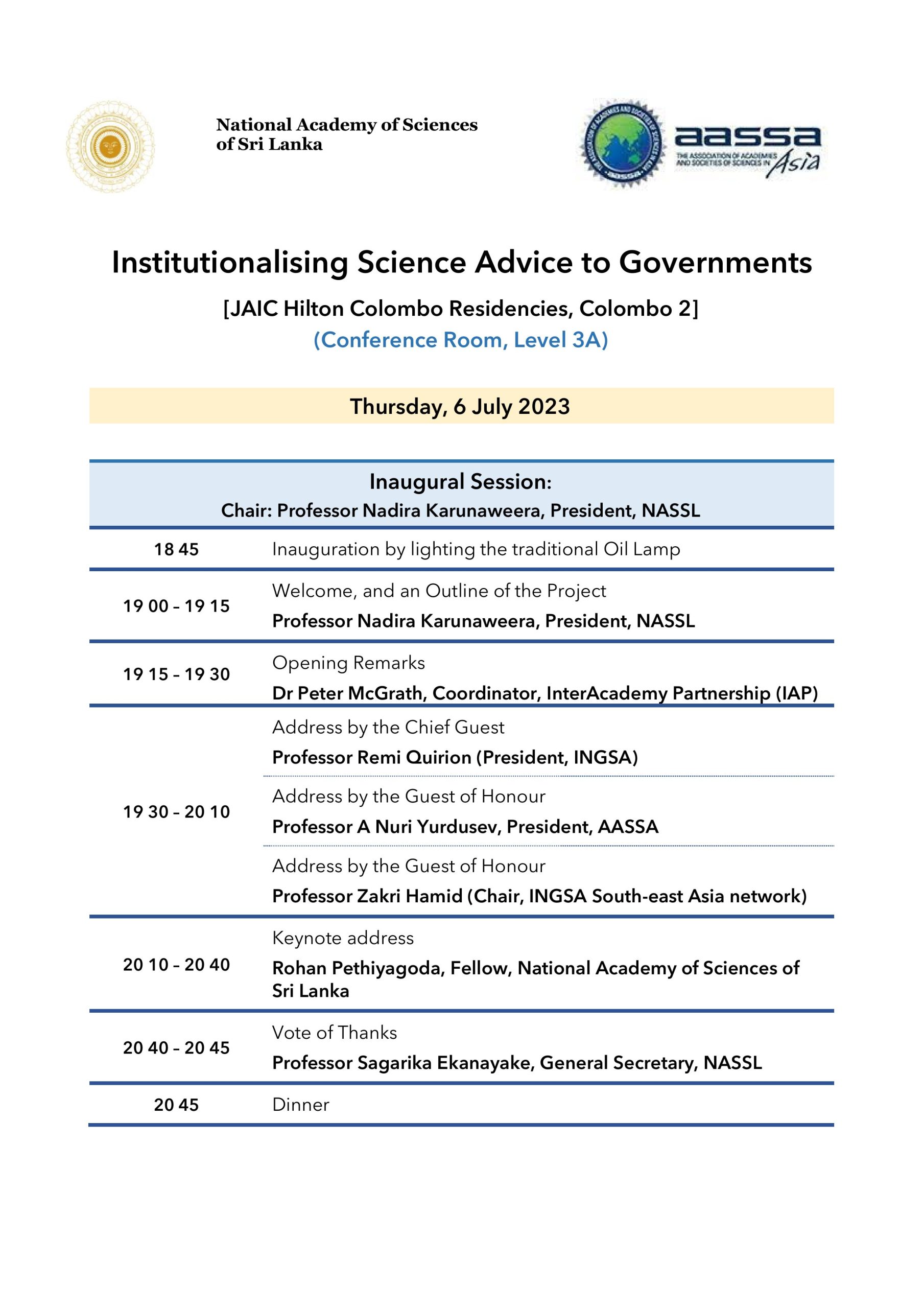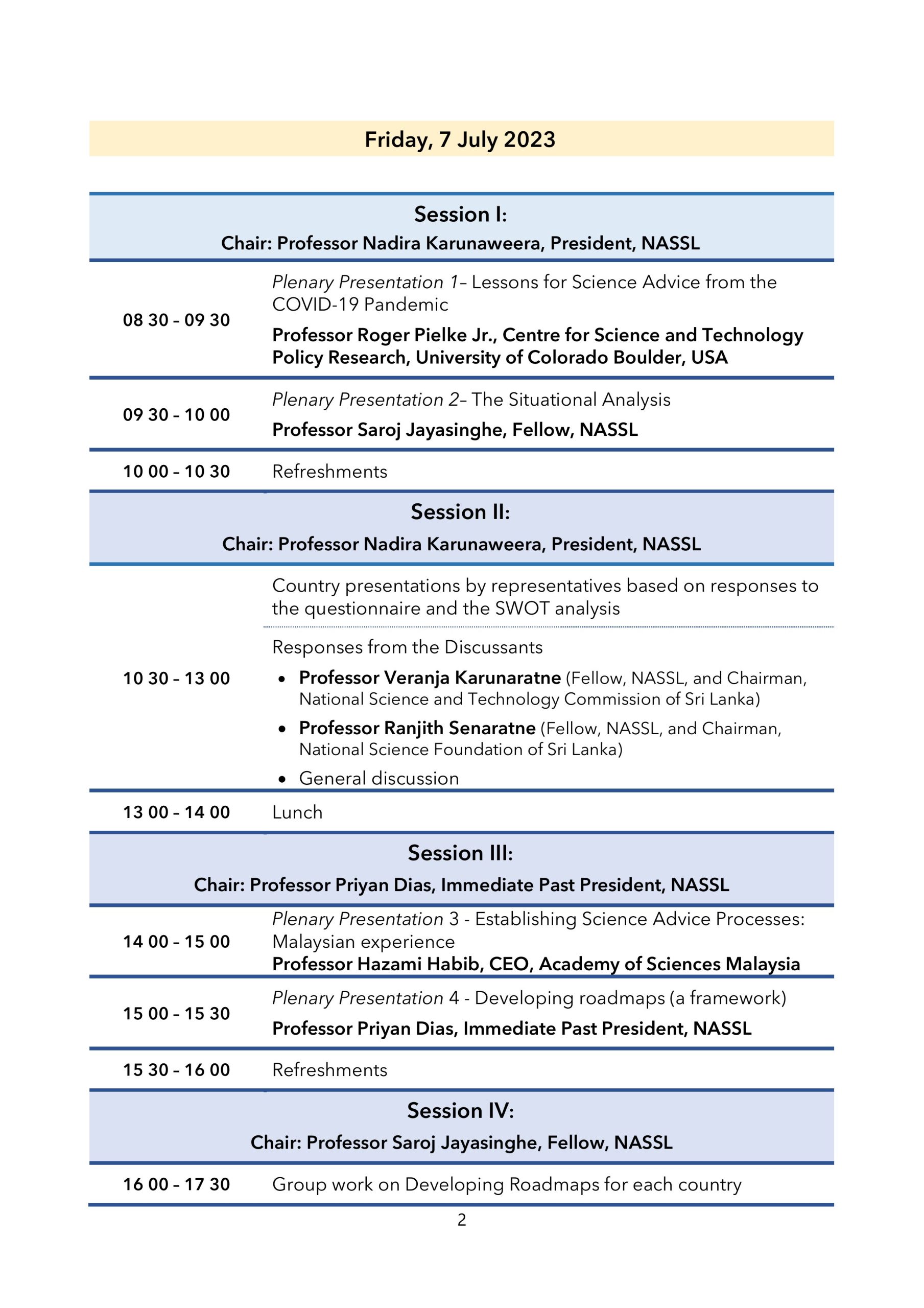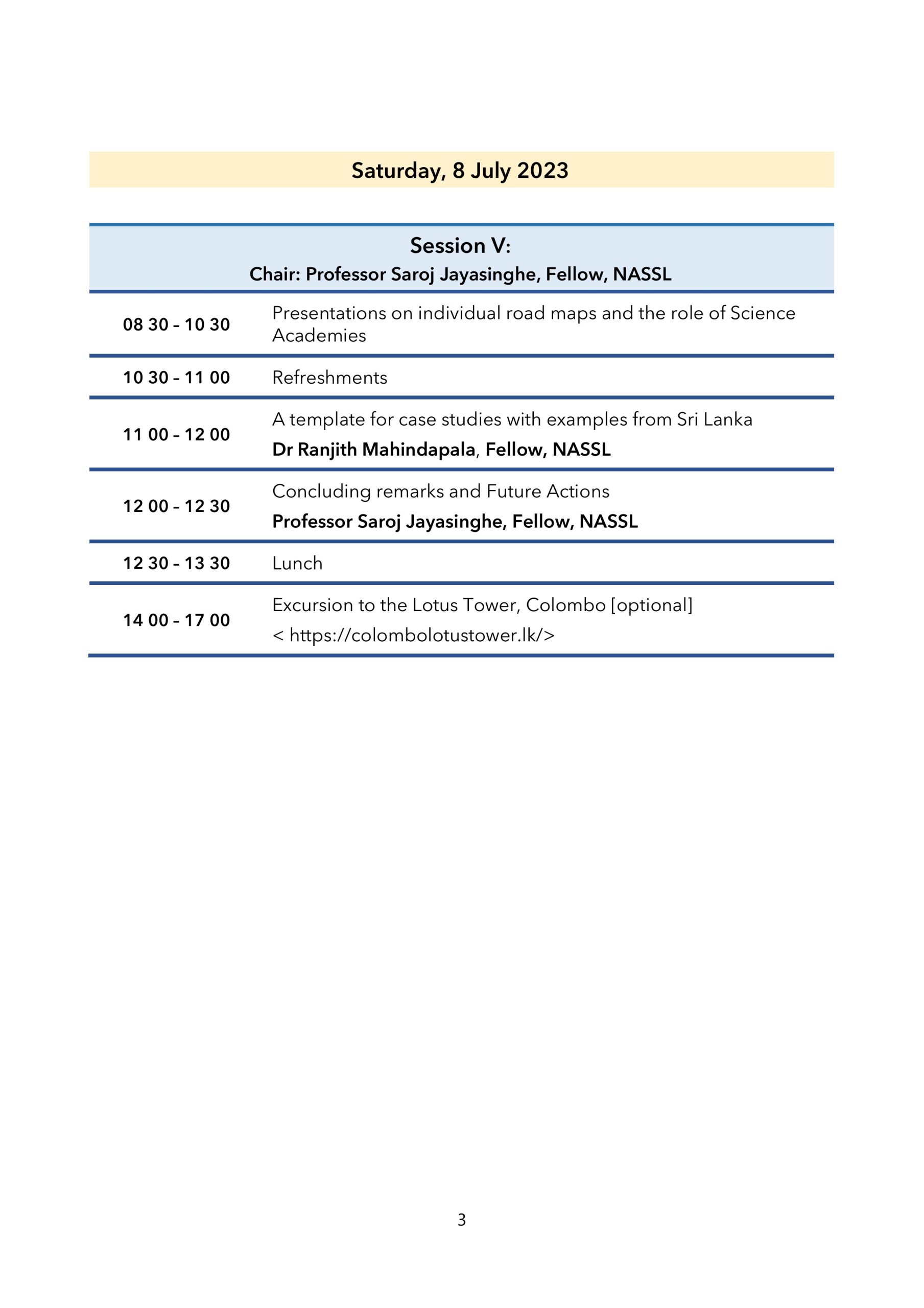Workshop on “Institutionalizing Science Advice to Governments” Colombo, Sri Lanka; 6-8 July 2023
COVID-19 pandemic clearly demonstrated the importance of evidence-based policymaking in countries across the globe irrespective of their development status. Most nations and their people do not optimally benefit from scientific knowledge, which is a cause for concern. The progress in institutionalizing science advice to governments has been uneven across nations, which resulted in varying pandemic responses. The Annual General Meeting of the NASSL held in 2021 decided to explore the importance of science advice to governments and subsequently received a grant from the Inter-academy Partnership (IAP) and Association of Academies and Societies of Sciences in Asia (AASSA) to conduct a study on the subject. The methodology included a series of webinars with partner academies and data gathering using key informants from member states.
A three-day workshop on ‘Institutionalizing Science Advice to Governments’ was held from 6-8 July 2023 (see program). It was aimed at addressing the void as to the lack of a proper institutional mechanisms and process for either obtaining or delivering science advice in the Asian region.
The participants included representatives from Science Academies or institutions in the regional countries (add a link to the map giving the countries represented with the name of the representative from each country) and representatives from AASSA and the Asian Chapter of the International Network for Governmental Science Advice (INGSA). There were 35 participants from 10 countries (Australia, Bangladesh, Bhutan, South Korea, Nepal, Philippines, Turkey and Sri Lanka).
The session was inaugurated on 6th July 2023 evening with the welcome address by Prof. Nadira Karunaweera, President, NASSL . Several dignitaries graced the inaugural session. The opening remarks were delivered by Dr. Peter Mc Grath, Coordinator, IAP , which was followed by a series of addresses by the Chief Guest (Professor Remi Quirion, President, INGSA) , Guests of Honour (Professor Dr. A. Nuri Yurdusev, President, AASSA and Professor Zakri Hamid, Patron, Asian chapter, INGSA). The keynote address was delivered by Mr. Rohan Pethiyagoda, Fellow of NASSL.
The plenary presentations on 7th July 2023 also added much value to the deliberations and were delivered by subject experts including Professor Roger Pielke Jr., Centre for Science and Technology Policy Research, University of Colorado Boulder, USA , Prof. Saroj Jayasinghe, NASSL Council member and Professor Emeritus, University of Colombo and Professor Hazami Habib, CEO, Academy of Sciences Malaysia . Discussion sessions were conducted with participation of Prof. Veranja Karunaratne (Fellow, NASSL and Chairman, NASTEC) and Prof. Ranjith Senaratne (Fellow, NASSL and Chairman , NSF) on the situation analyses of science advice presented by academy representatives highlighting the strengths, weaknesses, opportunities and threats (SWOT analysis) within their systems. A discussion ensued on the use of case studies to strengthen situation analysis report that is under preparation, with a structure for case studies presented by Dr. Ranjith Mahindapala, former President, NASSL [link].
The concluding session began with a plenary presentation by Prof. Priyan Dias, Immediate Past President, NASSL who proposed a Roadmap for science advice [link] followed by discussions centering on the ‘situation analysis’ of science advice processes and bodies involved in each country. This culminated in the design of early drafts of ‘contextualized roadmaps’ for science advice for each partner country. The ‘Country-specific Roadmaps’ will continue to be expanded and developed over the coming months.
The workshop was successfully concluded on 8th July 2023 with the ‘Colombo Declaration’ calling on governments to partner with scientists and demonstrate stronger commitment in strengthening institutions, streamlining processes, enabling scientific evidence to influence policies, and academies and partners to reinforce their commitment through urgent concerted action to institutionalize science advice to governments.
Agenda



